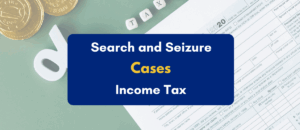The recent verdict by the Income Tax Appellate Tribunal (ITAT) has brought clarity to the application of Section 14A of the Income Tax Act, which pertains to disallowances of expenditures related to earning tax-free income.
This ruling holds significant implications for taxpayers navigating their investment strategies.
Understanding Section 14A
Section 14A was introduced to prevent taxpayers from claiming deductions on expenses incurred in generating income that does not contribute to their taxable income.
This typically includes expenditures related to investments yielding tax-exempt income, such as dividends from specified stocks or income from municipal bonds.
The ITAT’s Decision
In a recent case, the ITAT addressed a scenario where a taxpayer had investments that did not yield any tax-free income during the relevant assessment year.
Despite this, the Assessing Officer (AO) applied Section 14A to disallow certain expenditures, arguing they were related to these investments.
The taxpayer contested this, arguing that since no tax-free income was generated, Section 14A should not apply.
The ITAT ruled in favor of the taxpayer, emphasizing several critical points:
Purpose of Section 14A: The primary intent of Section 14A is to disallow expenses incurred for earning tax-free income. Without such income being generated, the rationale for disallowance under this section does not stand.
Absence of Tax-Free Income: It is unjustifiable to disallow expenditures when no tax-exempt income has been earned from the investments. The tribunal stressed that disallowance cannot be based on assumptions about future tax-free income.
Legal Precedents: The ITAT cited judicial precedents that support the interpretation that Section 14A disallowance is not applicable in cases where no tax-free income is earned. This underscores the principle that tax laws should be interpreted based on their intended purpose and context.
Implications for Taxpayers
The ITAT’s decision offers significant implications for taxpayers:
- Strategic Investments: Taxpayers can now make investment decisions without the concern of facing unwarranted disallowances under Section 14A, provided their investments do not yield tax-free income during the relevant period.
- Assessment Challenges: Taxpayers can challenge disallowances under Section 14A during assessments if no tax-free income has been earned, using the ITAT’s ruling as a precedent.
- Compliance and Documentation: While the ruling provides relief, taxpayers should maintain thorough documentation to substantiate the absence of tax-free income from their investments during assessment years.
The ITAT’s decision marks a significant clarification in the interpretation of Section 14A of the Income Tax Act. By affirming that disallowance is not justified for investments that do not yield tax-free income, the tribunal has aligned the provision with its intended purpose.
This ruling not only protects taxpayers from undue financial burdens but also underscores the importance of interpreting tax laws in a manner that upholds fairness and clarity. Taxpayers are encouraged to stay informed about such legal developments to effectively manage their tax liabilities and compliance obligations.

 Expert verified
Expert verified 

